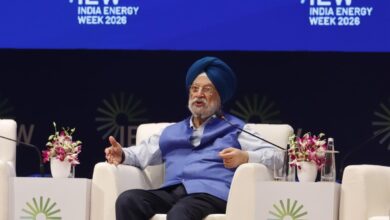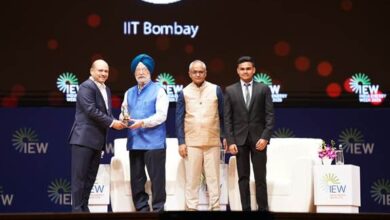Post Election Results – Will Strategic Disinvestment Drive Of PSUs and PSBs Hit A Roadblock ?
Will kingmakers Chandrababu Naidu and Nitish Kumar support privatization drive ?

2024 General Elections are over and Exit Polls have fallen flat on their face. The Bhartiya Janata Party has managed to win 240 seats on its own and would be trying to form government with the help of its allies namely TDP which has won 16 seats, JDU which has won 12 seats and other smaller parties. In the meantime, the INDIA Alliance is also meeting today and will decide whether they would throw their hat in the ring to form government or not. There are talks that this alliance is also in touch with Chandrababu Naidu, Nitish Kumar, independents and others.
The million dollar question now is that whether or not the BJP/NDA, if comes into power, will be successful in going ahead with its roadmap of privatization of Public Sector Undertakings and Public Sector Banks ?
www.indianpsu.com spoke to several trade union leaders to know their views on this subject. Veteran bank trade union leader and former General Secretary of All India Bank Officers’ Confederation, Thomas Franco says “it’s a clear lesson to BJP that people don’t want privatization of Public sector. Despite announcing privatization of 2 banks two years back they did not do it because they were afraid of the backlash. Giving 3.5% of share of LIC to private players has not helped LIC in anyway. All the achievements claimed by BJP like MUDRA loans, PM SVANidhi SHG loans, Atal Pension Yojana etc. were done by Public Banks. The Unions will also take a tough stand . Hence privatization will not take place in our country. People have rejected the policies of BJP and given a defeat. Hence, the BJP has to change its position on privatization.”
Responding to questions on this topic posed by www.indianpsu.com – C. Srikumar, veteran Trade Union Leader who is also a National Secretary of AITUC stated that “the the election results clearly reveals that the people of the country have rejected the policy of the BJP Government to corporatize Government Departments and to privatize the Public Sector Industries. At present, I cannot predict that which Alliance Front will form the Government at the centre, since none of the major political parties like Congress and BJP have secured independent majority. They have to depend on other parties for formation of the government. However, election results are a lesson to the political parties and compromising with the nation’s interest by encouraging ruthless privatization has been rejected by the people. The
new government should revisit the policies of privatization and corporatization and withdraw all such policies which are not in the interest of the nation and the people.”
Veteran Bank Trade Union leader Sanjay Das says “whosoever be in the power for an effective democracy we need a strong opposition. There is a saying that power corrupts and absolute power corrupts absolutely. An effective opposition is necessary to provide check and balances in the government. So far Bank privatization is concerned in the recent past we have seen that there is a tendency to project Bank Privatization as the only panacea of Indian economy which is totally wrong. Every one knows privatization is not good for our country, it will bring monopoly , a private monopoly, a public monopoly and privatization is against the interest of the country but everyone wants to give a message that the Indian policy makers are the blue eyed boys of world capitalism. India is a big country which is having its highest youth strength should not be opened up from the shackles of the government for organized loot and legalized plunder of the Economy. For better control on the capital the state shouldn’t lose control and handover it totally to market driven economy for the shake of welfare of the youth”.
Another contentious issue before the new government in the centre would be whether to continue with the New Pension Scheme (NPS) or revert back to Old Pension Scheme (OPS), as coming back to OPS has been a long standing demand of trade unions as well as government employees.




